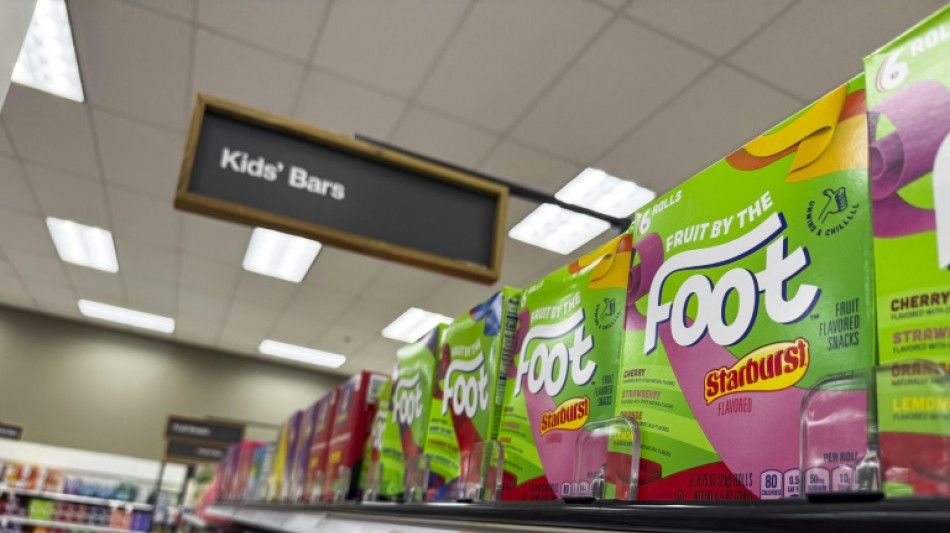
-
 Asian markets edge up but uncertainty rules ahead of Trump tariffs
Asian markets edge up but uncertainty rules ahead of Trump tariffs
-
Nintendo's megahit Switch console: what to know

-
 Nintendo to unveil upgrade to best-selling Switch console
Nintendo to unveil upgrade to best-selling Switch console
-
China practises hitting key ports, energy sites in Taiwan drills

-
 Oil, sand and speed: Saudi gearheads take on towering dunes
Oil, sand and speed: Saudi gearheads take on towering dunes
-
All eyes on Tsunoda at Japan GP after ruthless Red Bull move

-
 'Image whisperers' bring vision to the blind at Red Cross museum
'Image whisperers' bring vision to the blind at Red Cross museum
-
Hay shines as New Zealand make 292-8 in Pakistan ODI

-
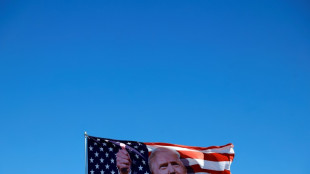 Other governments 'weaponising' Trump language to attack NGOs: rights groups
Other governments 'weaponising' Trump language to attack NGOs: rights groups
-
UK imposes online entry permit on European visitors

-
 How a Brazilian chief is staving off Amazon destruction
How a Brazilian chief is staving off Amazon destruction
-
Meme politics: White House embraces aggressive alt-right online culture
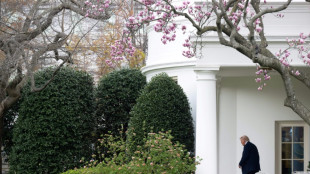
-
 China launches military drills in Taiwan Strait
China launches military drills in Taiwan Strait
-
US senator smashes record with 25-hour anti-Trump speech
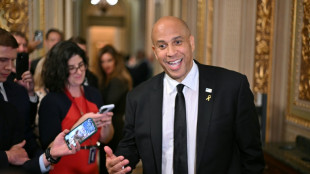
-
 Brazil binman finds newborn baby on garbage route
Brazil binman finds newborn baby on garbage route
-
US senator smashes record with marathon anti-Trump speech
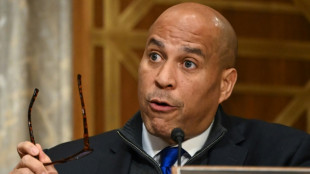
-
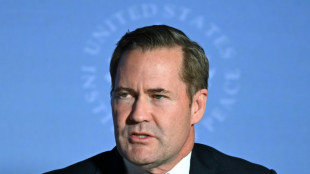 Trump advisor Waltz faces new pressure over Gmail usage
Trump advisor Waltz faces new pressure over Gmail usage
-
Niger junta frees ministers of overthrown government

-
 Trump set to unleash 'Liberation Day' tariffs
Trump set to unleash 'Liberation Day' tariffs
-
Boeing chief to acknowledge 'serious missteps' at US Senate hearing

-
 Real Madrid hold Real Sociedad in eight-goal thriller to reach Copa del Rey final
Real Madrid hold Real Sociedad in eight-goal thriller to reach Copa del Rey final
-
Nuno salutes 'special' Elanga after stunning strike fires Forest

-
 PSG survive scare against Dunkerque to reach French Cup final
PSG survive scare against Dunkerque to reach French Cup final
-
Sundowns edge Esperance as crowd violence mars quarter-final

-
 Nottingham Forest beat Man Utd, Saka scores on Arsenal return
Nottingham Forest beat Man Utd, Saka scores on Arsenal return
-
Elanga wonder-goal sinks Man Utd as Forest eye Champions League berth

-
 Stock markets mostly advance ahead of Trump tariffs deadline
Stock markets mostly advance ahead of Trump tariffs deadline
-
US movie theaters urge 45-day 'baseline' before films hit streaming

-
 Saka scores on return as Arsenal beat Fulham
Saka scores on return as Arsenal beat Fulham
-
Third-division Bielefeld shock holders Leverkusen in German Cup

-
 Ball-blasting 'Torpedo bats' making waves across MLB opening weekend
Ball-blasting 'Torpedo bats' making waves across MLB opening weekend
-
Newsmax shares surge more than 2,000% in days after IPO
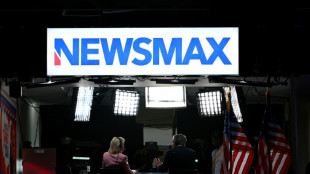
-
 Thousands of Hungarians protest against Pride ban law
Thousands of Hungarians protest against Pride ban law
-
GM leads first quarter US auto sales as tariffs loom

-
 Tesla sales tumble in Europe in the first quarter
Tesla sales tumble in Europe in the first quarter
-
No 'eye for an eye' approach to US tariffs: Mexico

-
 NFL club owners back dynamic kickoffs, delay tush push vote
NFL club owners back dynamic kickoffs, delay tush push vote
-
Trump 'perfecting' new tariffs as nervous world braces

-
 Trump nominee says to press UK on Israel arms
Trump nominee says to press UK on Israel arms
-
French court says Le Pen appeal ruling could come before presidential vote

-
 The battle to control assets behind Bosnia crisis
The battle to control assets behind Bosnia crisis
-
Prabhsimran powers Punjab to IPL win over Lucknow

-
 Mass layoffs targeting 10,000 jobs hit US health agencies
Mass layoffs targeting 10,000 jobs hit US health agencies
-
Tiger's April Foolishness: plan to play Masters just a joke

-
 Myanmar quake toll passes 2,700, nation halts to honour victims
Myanmar quake toll passes 2,700, nation halts to honour victims
-
Turkish fans, artists urge Muse to cancel Istanbul gig

-
 US seeks death penalty for accused killer of insurance CEO
US seeks death penalty for accused killer of insurance CEO
-
UK govt moves to block sentencing guidelines for minority defendants

-
 Trump puts world on edge as 'Liberation Day' tariffs loom
Trump puts world on edge as 'Liberation Day' tariffs loom
-
Swedish journalist jailed in Turkey kept 'isolated': employer


US bans controversial red food dye, decades after scientists raised alarm
Outgoing US President Joe Biden's administration on Wednesday announced a ban on Red Dye No 3, a controversial food and drug coloring long known to cause cancer in animals.
Decades after scientific evidence first raised alarm, Red 3, as it is also called, is currently used in nearly 3,000 food products in the United States, according to the nonprofit Environmental Working Group.
"FDA is revoking the authorized uses in food and ingested drugs of FD&C Red No 3 in the color additive regulations," said a document from the Department of Health and Human Services, published in the Federal Register on Wednesday.
The decision stems from a petition filed in November 2022 by the Center for Science in the Public Interest (CSPI) and other advocacy groups, which cited the "Delaney Clause" -- a provision mandating the prohibition of any color additive shown to cause cancer in humans or animals.
Notably, the FDA determined as early as 1990 that Red 3 should be banned in cosmetics because of its link to thyroid cancer in male rats.
However, the additive continued to be used in foods, largely due to resistance from the food industry. Manufacturers of maraschino cherries, for example, relied on Red 3 to maintain the iconic red hue of their products.
It's also present in thousands of candies, snacks and fruit products -- and thousands of medicines, according to a search of a government-run database, DailyMed.
"Manufacturers who use FD&C Red No 3 in food and ingested drugs will have until January 15, 2027, or January 18, 2028, respectively, to reformulate their product," the FDA said.
Although the agency acknowledged a cancer link in rats, it maintained that the available evidence does not support such a link in humans, citing differences in hormonal mechanisms between the species and significantly lower exposure levels in people.
- US lags behind -
While the FDA determination focused on carcinogenicity, other research has also found potential neurobehavioral effects of synthetic food dyes on children, notably Attention-Deficit/Hyperactivity Disorder (ADHD).
"The body of evidence from human studies indicates that synthetic food dyes are associated with adverse neurobehavioral outcomes in children, and that children vary in their sensitivity to synthetic food dyes," a California government report found in 2021.
Animal studies indicated that synthetic food dyes caused changes in neurotransmitter systems in the brain and produced microscopic changes in brain structure, affecting activity, memory and learning.
The United States has been slow to act on Red 3 compared to other major economies. The European Union banned its use in 1994, with similar prohibitions enacted in Japan, China, the UK, Australia, and New Zealand.
CSPI hailed the FDA's decision as long overdue and expressed hope that it would pave the way for broader action on other harmful chemicals in food.
"They don't add any nutritional value, they don't preserve the food -- they're just there to make food look pretty," Thomas Galligan, a scientist with CSPI, told AFP.
"There's growing discussion across the political spectrum about food additives and chemicals, which reflects ongoing failures by the FDA."
The nonprofit called on the incoming administration of President-elect Donald Trump to take further steps to protect consumers, including setting stricter limits on heavy metals like lead, arsenic and cadmium, in foods consumed by children.
D.Cunningha--AMWN

